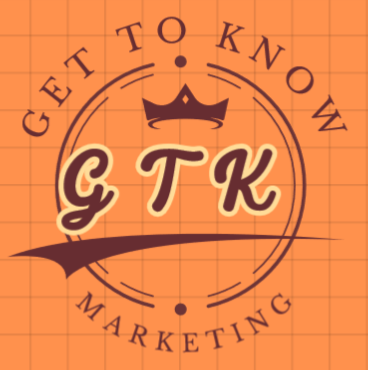In today’s competitive market, leveraging AI tools to enhance sales processes has become a necessity. Zoho and HubSpot, two leading CRM platforms, offer a suite of AI-powered tools designed to optimize sales activities. In this blog post, we will compare and contrast the top AI tools in Zoho and HubSpot to help you determine which platform might be the best fit for your business.
Zoho AI Tools for Sales
- Zia
- Description: Zia is Zoho’s AI-powered sales assistant, providing insights, predictions, and recommendations.
- Key Features:
- Lead and Deal Predictions: Predicts the likelihood of closing deals and identifies the best leads.
- Sales Insights: Analyzes sales data to provide actionable insights.
- Email and Sentiment Analysis: Evaluates email communications to prioritize responses.
- Zoho CRM
- Description: A comprehensive CRM system with built-in AI capabilities.
- Key Features:
- Lead Scoring: Uses AI to rank leads based on conversion probability.
- Sales Signals: Delivers real-time notifications about customer interactions.
- Predictive Sales Analytics: Helps forecast sales trends and outcomes.
- Zoho SalesIQ
- Description: An AI-driven live chat and visitor tracking tool.
- Key Features:
- Lead Enrichment: Automatically gathers detailed lead information.
- Behavioral Analysis: Analyzes visitor behavior to identify potential customers.
- Proactive Chat: Engages visitors with AI-driven chat prompts.
- Zoho Campaigns
- Description: An email marketing tool enhanced with AI.
- Key Features:
- Send Time Optimization: Determines the optimal time to send emails.
- Content Suggestions: Provides AI-driven content recommendations.
- Campaign Insights: Analyzes performance and suggests improvements.
- Zoho Desk
- Description: An AI-powered customer support tool that integrates with sales.
- Key Features:
- Ticket Prioritization: Prioritizes support tickets based on urgency.
- Knowledge Base Suggestions: Recommends relevant articles to agents and customers.
- Sentiment Analysis: Evaluates customer interactions to gauge sentiment.
HubSpot AI Tools for Sales
- HubSpot Sales Hub
- Description: A robust sales CRM with AI features for automation and optimization.
- Key Features:
- Predictive Lead Scoring: Ranks leads based on conversion likelihood.
- Email Tracking and Notifications: Tracks email engagement and suggests follow-ups.
- Sales Automation: Automates tasks such as follow-up emails and scheduling.
- HubSpot Conversation Intelligence
- Description: Analyzes sales calls to provide insights and coaching.
- Key Features:
- Call Transcription and Analysis: Transcribes and analyzes sales calls for keywords and sentiment.
- Coaching Recommendations: Offers feedback for improving sales conversations.
- Deal Insights: Identifies trends and opportunities from call data.
- HubSpot AI-Powered Sales Forecasting
- Description: Provides accurate sales forecasts using AI.
- Key Features:
- Predictive Analytics: Forecasts sales performance using historical data.
- Customizable Reports: Allows creation of custom forecasts.
- Pipeline Management: Tracks deal progress and identifies potential risks.
- HubSpot Content Strategy Tool
- Description: AI-powered tool for content creation and optimization.
- Key Features:
- Topic Clusters: Groups related content for better SEO.
- Content Recommendations: Suggests new content ideas based on trends.
- SEO Optimization: Improves SEO with AI-driven recommendations.
- HubSpot Email Marketing AI Tools
- Description: Optimizes email marketing campaigns with AI.
- Key Features:
- Send Time Optimization: Identifies the best times to send emails.
- A/B Testing and Optimization: Tests and optimizes email variations.
- Personalization and Segmentation: Tailors email content to specific segments.
Comparing Zoho and HubSpot AI Tools
Similarities
- Lead Scoring: Both platforms offer AI-driven lead scoring to prioritize leads based on conversion probability.
- Sales Forecasting: Each provides predictive analytics to forecast sales trends and outcomes.
- Email Optimization: AI-driven tools in both Zoho and HubSpot optimize email send times and content.
Differences
- Conversation Intelligence: HubSpot has a dedicated Conversation Intelligence tool for analyzing sales calls and providing coaching recommendations, which Zoho lacks.
- Content Strategy: HubSpot offers a Content Strategy Tool that helps with SEO and content creation, while Zoho’s AI tools are more focused on direct sales activities.
- Integration with Customer Support: Zoho Desk integrates AI with customer support, offering features like ticket prioritization and sentiment analysis, which are not directly available in HubSpot’s sales tools.
Conclusion
Both Zoho and HubSpot offer powerful AI tools to enhance sales processes, but they cater to slightly different needs. Zoho’s tools are highly integrated with customer support and focused on providing comprehensive insights across various sales activities. HubSpot, on the other hand, excels in conversation intelligence and content strategy, making it ideal for businesses looking to improve sales through enhanced communication and content optimization.
Choosing between Zoho and HubSpot will depend on your specific business needs and priorities. If your focus is on integrated customer support and detailed sales insights, Zoho might be the better choice. If you need advanced call analysis and content strategy tools, HubSpot could be the way to go.
